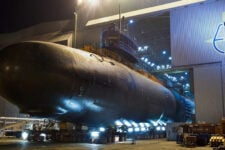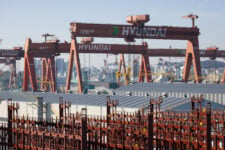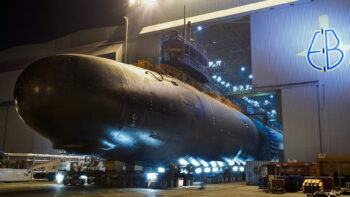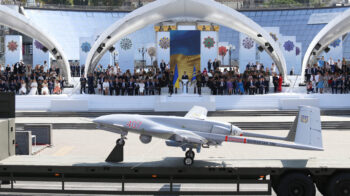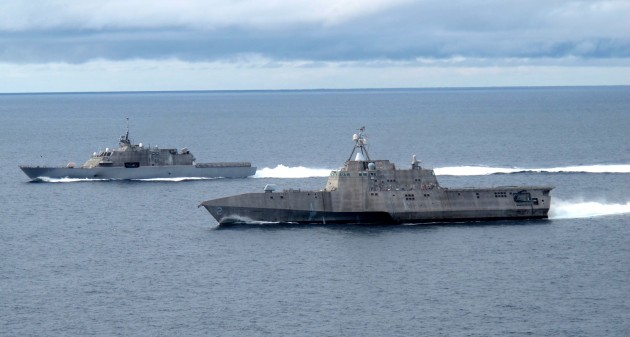
The two Littoral Combat Ship variants, LCS-1 Freedom (far) and LCS-2 Independence (near).
WASHINGTON: Talk about timing. As Congress gears up to grill Navy officials on the much-criticized Littoral Combat Ship program, the fleet’s first LCS suffered yet another power outage that “briefly” shut down its engines near Singapore, where the USS Freedom recently deployed for its first foreign tour. [Click here for the Navy’s detailed official explanations]. Freedom had three prior electrical outages in March.
“Sydney, this is ludicrous,” fumed naval historian and LCS critic Norman Polmar. “It’s a relatively simple ship and we can’t get it right. There’s something wrong with the whole approach, the whole program, and it needs to be reviewed at a much higher level,” he said, preferably by a blue-ribbon panel of experts from outside the Navy Department: “It can’t be left in the hands of the people running the program, Navy and civilian.”
“I hate to tell you ‘we told you so’,” said Ben Freeman, who led the charge against LCS at the Project On Government Oversight, POGO. (Freeman is now the national security advisor at Third Way, a centrist Democratic thinktank). “We were talking about these problems two years ago, and we were told at the time …. all this has been dealt with, from the equipment failures to the cracking.”
The Littoral Combat Ship has come under heavy fire for years from two different directions. Good-government watchdogs, like Freeman, say the program has been badly managed, with major cost overruns and quality-control problems, from hull cracking on the Lockheed Martin/Marinette Marine Freedom variant to corrosion on the General Dynamics/Austal Independence. (The two contractors are building distinctly different designs).
GD chief says Navy’s 1 sub buy won’t impact company short term, but out years less certain
The comments from the General Dynamics chief come on the same day President Joe Biden signed the national security supplemental, which includes billions for the sub industrial base.
